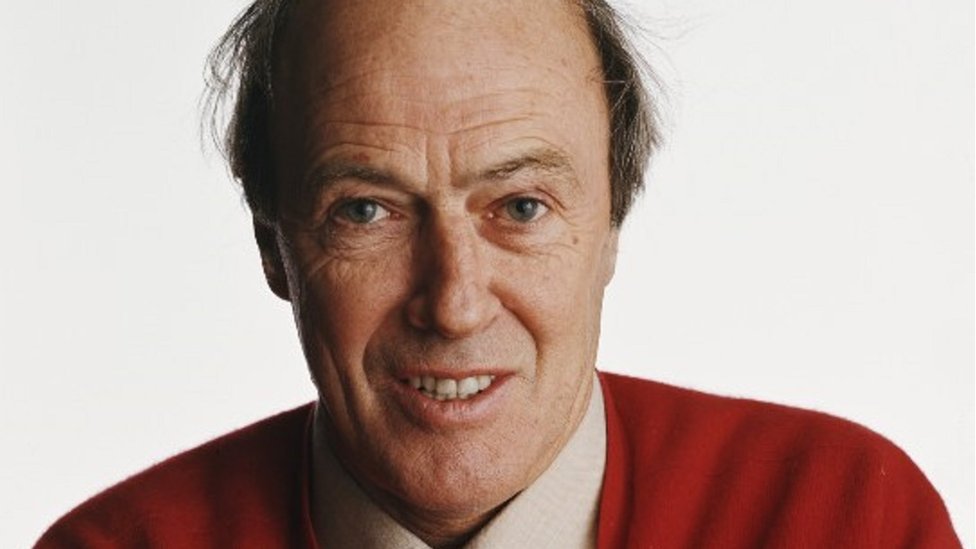Roald Dahl
Prime Minister Rishi Sunak has criticized changes to Roald Dahl’s books after the removal of some references to things like characters’ looks and weight sparked heated debate.
Dahl’s estate and publishers said works such as The BFG and Charlie and the Chocolate Factory have been updated to better suit modern audiences.
Some said they approve of the changes.
But Mr Sunak’s spokesperson said novels “should be preserved, not airbrushed”.
Borrowing a word Dahl invented to play with the language, the Prime Minister’s spokesman said: “When it comes to our rich and varied literary heritage, the Prime Minister agrees with the BFG that we do not babble on words should.”
Others opposed to the changes include author Sir Salman Rushdie.
“Roald Dahl was no angel, but that’s absurd censorship,” wrote the author of Midnight’s Children and Satanic Verses posted on Twitter. “Puffin Books and the Dahl Estate should be ashamed of themselves.”
The Roald Dahl Story Company said all changes stemming from its review process, which has been ongoing since 2020, have been “small and carefully considered”.
Philip Pullman, author of Dark Materials, told BBC Radio 4 that Dahl’s books “are allowed to fade” and should not be altered if deemed offensive.
“If Dahl offends us, let him be out of print,” Pullman said. “Read all that [other] wonderful authors writing today who don’t get as much attention because of the massive commercial seriousness of the likes of Roald Dahl.”
But the poet and author Debjani Chatterjee finds it “very good that the publishers are reviewing his work”.
She told the BBC World Service: “I think it was done quite sensitively. Take the word ‘fat’. You used ‘enormously’. If anything, I think ‘enormous’ is even funnier.”
What has changed?
-
Augustus Gloop from Charlie and the Chocolate Factory is now described as “huge” with the word “fat” being removed from each book, according to the Telegraph
-
Ms. Twit, of the Twits, is no longer “ugly and beastly” but just “beastly”
-
In the same book, “a strange African language” is no longer strange
-
The words “crazy” and “mad” were also removed to emphasize mental health, the newspaper reported
-
Threatening to “beat up” Matilda became “Give her the right to talk to her”
-
Hints on colors have also been changed – the BFG’s coat is no longer black; while Mary in The BFG is now “still as a statue” instead of “white as a sheet”.
“A Homage” or “Removal of the Spirit”?
Children’s author John Dougherty told BBC Radio 5 Live: “There’s no reason why the BFG shouldn’t have a black cape. That just seems absurd.
“And Augustus Gloop for example – the whole point of the character is that he’s hugely overweight because he doesn’t stop eating – he’s greedy.
“Well, there could be an argument that that’s offensive in today’s world,” Dougherty continued. “I think if you decide that, then the only answer is to pull the book from the press. I don’t think you can say, ‘So let’s change Dahl’s words but keep the character.’”
Kate Clanchy, a former teacher who revised her own memoir after being criticized for some descriptions, said children’s books should be treated with extra care.
“Augustus Gloop is a greedy character. He’s still going to be morally greedy and his moral greed will be wrong regardless of whether we have lots, lots, lots of clues as to how fat he is, which I think can be annoying,” she told 5 Live.
“We always updated children’s books. It’s a tribute to the way these books become myths…that we’ve adapted them again.”
Laura Hackett, deputy literary editor of The Sunday Times, said she will continue to read to her children her original copies of Dahl’s books in all their “full, wicked, colorful glory”.
“I think that kind of wickedness is so much fun for Dahl,” she told 5 Live. “You love it when Bruce Bogtrotter in Matilda is forced to eat the whole chocolate cake or you are locked in the chokey [a torture device] – kids love that.
“And to remove any reference to violence or anything that isn’t clean and nice and friendly, then you remove the spirit of those stories.”
“Enjoyed by all the kids today”
Many of Roald Dahl’s books have also been made into films
The books have been altered after being reviewed by sensitive readers who check for potentially offensive content.
The Roald Dahl Story Company partnered with publishers Puffin and Inclusive Minds, a collective dedicated to promoting inclusion and accessibility in children’s literature.
A spokesman for the Roald Dahl Story Company said they wanted to “ensure that Roald Dahl’s wonderful stories and characters continue to be enjoyed by all children today.”
“When releasing new editions of books written years ago, it’s not uncommon to review the language used while updating other details like a book’s cover and page layout,” it says.
It added, “Our guiding principle was to retain the storylines, characters, and irreverence and hard-edged spirit of the original text.”
Dahl, who died in 1990 at the age of 74, remains one of the UK’s most popular children’s book authors, and Netflix bought the rights to his work in 2021.
But anti-Semitic comments made throughout his life meant that Dahl was a highly problematic figure.
In 2020, his family apologized and said they acknowledged the “enduring and understandable pain caused by Roald Dahl’s anti-Semitic remarks”.
Don’t miss interesting posts on Famousbio










